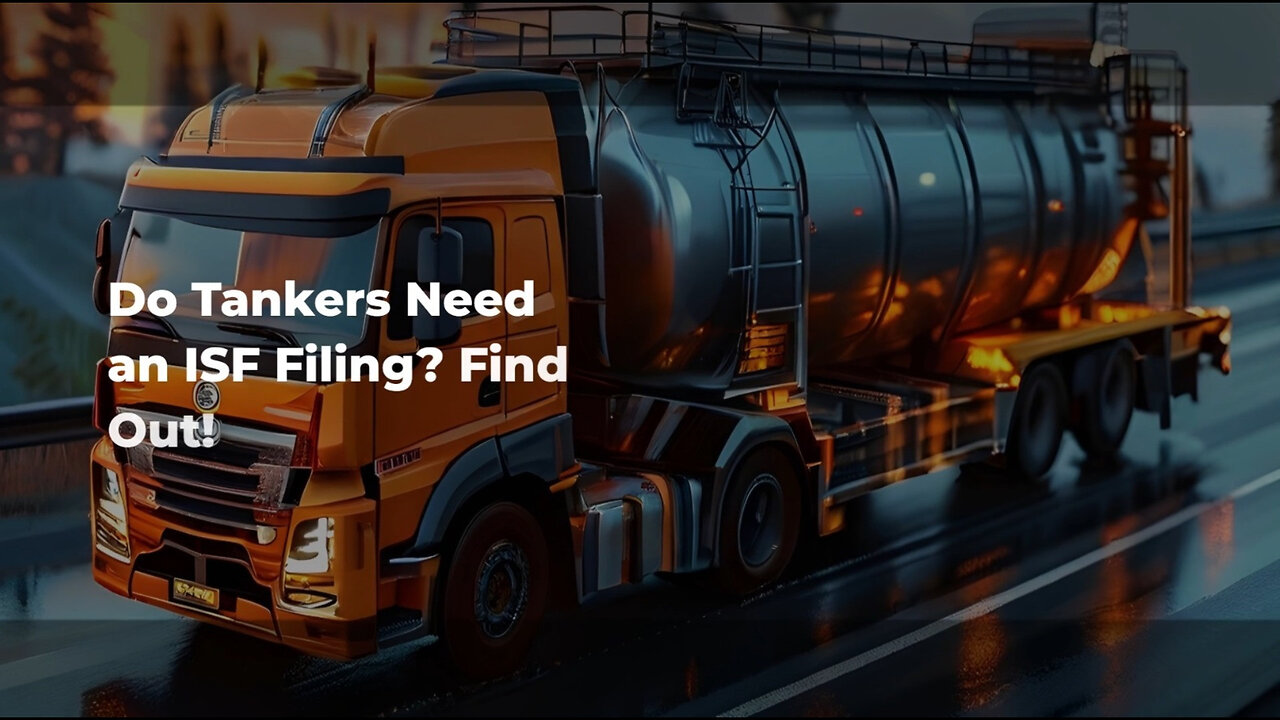Premium Only Content

Understanding ISF Requirements: The Ins and Outs of Tanker Shipments
ISF Template | 562-453-7357 | isf@isftemplate.com | www.isftemplate.com
This response provides a deep dive into the concept of Importer Security Filing (ISF) requirements for tanker shipments. It emphasizes that while ISF filing is not mandatory for all types of shipments, it is not required for tankers transporting bulk cargo like oil, gas, or chemicals. However, there are exceptions to this rule, such as if the tanker carries non-bulk items or makes stops at ports before the final destination. The advantages of voluntarily filing an ISF for tanker shipments are also highlighted, including a streamlined customs clearance process and improved supply chain visibility. Lastly, the importance of consulting with a licensed customs broker for guidance on ISF requirements for specific shipments is emphasized.
#usimportbond #isfcustomsbroker #uscustomsclearing #isfentry
Video Disclaimer Here: This video is designed for education and is unaffiliated with US government bodies.
00:21 - ISF Overview: The Importer Security Filing (ISF) enhances supply chain security and is crucial for customs compliance, but it's not mandatory for all shipments.
00:41 - Tanker Exemptions: Tanker shipments transporting bulk cargo (like oil, gas, or chemicals) are generally exempt from ISF requirements, but exceptions apply if non-bulk items are carried or if the tanker stops at a port before reaching its final destination.
01:29 - Benefits of Voluntary Filing: Although not required, voluntarily filing an ISF can streamline customs clearance, reduce delays, and improve supply chain visibility, leading to potential cost savings.
01:52 - Consult a Customs Broker: It's advisable to consult a licensed customs broker to assess whether an ISF is needed for specific tanker shipments, ensuring compliance and a smooth process.
-
 3:52:05
3:52:05
Akademiks
7 hours agoDay 3/30. Drake Drops lawsuit vs iHeartMedia? Offset and Cardi Calls it Quits. 50 v Jim Jones?
65K5 -
 2:51:55
2:51:55
TimcastIRL
11 hours agoTrump Just FROZE ALL Ukraine Aid After Zelenskyy SCREWED Negotiations w/Viva Frei | Timcast IRL
213K76 -
 9:54:54
9:54:54
Dr Disrespect
20 hours ago🔴LIVE - DR DISRESPECT - PUBG - 5 CHICKEN DINNERS CHALLENGE!
233K27 -
 1:58:28
1:58:28
Kim Iversen
13 hours agoSHOCKED! BETRAYED! RFK Jr. FLIPS on Measles Vaccine? | NATO Trap: Europe Could Drag The US to WW3
121K231 -
 18:37
18:37
Clownfish TV
11 hours agoThe Oscars Just EMBARASSED Disney and Emilia Pérez...
78.1K23 -
 56:28
56:28
Glenn Greenwald
13 hours agoDocumentary Exposing Repression in West Bank Wins at Oscars; Free Speech Lawyer Jenin Younes on Double Standards for Israel's Critics | SYSTEM UPDATE #416
121K98 -
 1:03:34
1:03:34
Donald Trump Jr.
15 hours agoZelensky Overplays His Hand, More Trump Wins, Plus Interview with Joe Bastardi | Triggered Ep.221
190K144 -
 1:13:16
1:13:16
We Like Shooting
23 hours ago $7.41 earnedDouble Tap 399 (Gun Podcast)
69.7K2 -
 1:00:20
1:00:20
The Tom Renz Show
1 day agoTrump Schools Zelensky, The Epstein Files FAIL, & What RFK Will Mean for Cancer
80.9K24 -
 42:47
42:47
Kimberly Guilfoyle
16 hours agoThe Trump effect: More Major Investment, Plus America First at Home & Abroad. Live w/Ned Ryun & Brett Tolman | Ep. 201
155K40